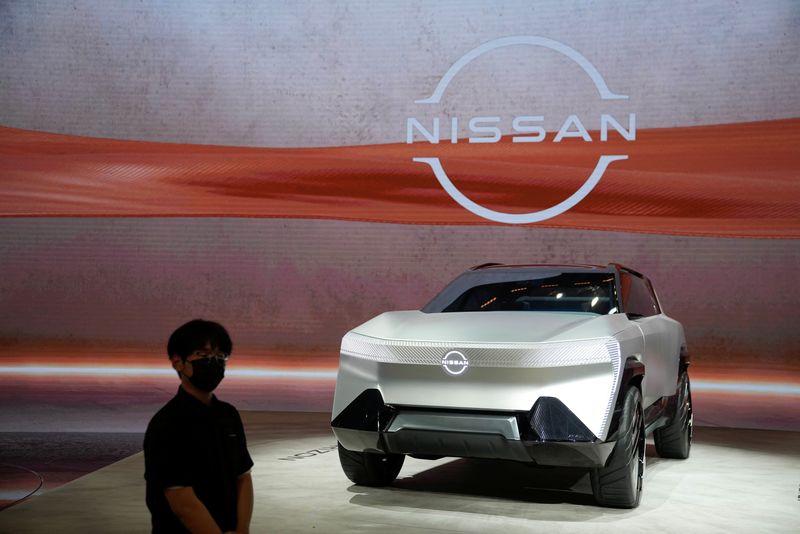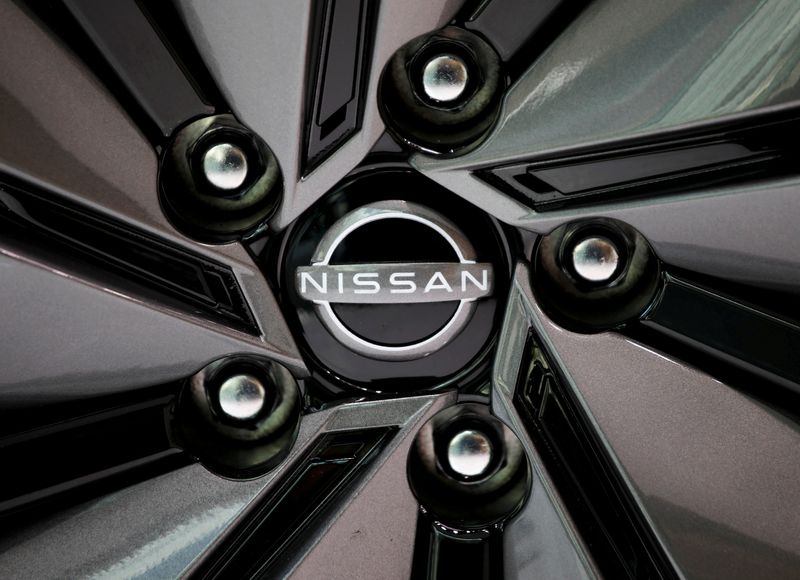By Josh Horwitz and Daniel Leussink
SHANGHAI/TOKYO (Reuters) -Japan's Nissan (OTC:NSANY) Motor on Tuesday unveiled a new electric sport-utility vehicle (SUV) at the Shanghai auto show as it pledged its commitment to the Chinese auto market, which it said was likely to continue to pioneer the rise of electric cars.
China has long been a key market for Nissan, but like other global automakers, it faces increasing pressure and the threat of declining market share from the rise of home-grown auto companies.
Nissan plans to launch an EV designed specifically for the Chinese market, said Ashwani Gupta, Nissan's chief operating officer, speaking at the show.
"China has already crossed the tipping point of accepting the electrified car as a modern car," Gupta said later, on the sidelines of the show. "Nissan does not want to miss this opportunity."
The company's new vehicle, called the Arizon, will offer a virtual personal assistant, dubbed Eporo, and feature a low centre of gravity while lacking structural pillars, a move Gupta said enhances the car's spacious interior.
Once a pioneer in the global electric vehicle (EV) market with the Leaf, Nissan has long since ceded dominance to Tesla (NASDAQ:TSLA) Inc and has struggled in China against BYD, the country's biggest EV player.
Nissan has decided to keep development of "advanced mobility" software in-house, said Gupta, working on systems related to safety or which can set Nissan apart in terms of competitiveness, including for battery management systems and autonomous driving.
"Software which is more commoditised, more coming from outside IT companies like Google (NASDAQ:GOOGL) and Microsoft (NASDAQ:MSFT) and so on, definitely we are collaborating with them to have (such software) in our car," he added.

Nissan's latest electric offering, the Ariya crossover, has been hampered by problems at its high-tech production line, Reuters reported last month, slowing delivery of a car that was designed to put the Japanese automaker on the road to a comeback.
The Ariya is supposed to be the first of 19 new battery EVs that Nissan has said it plans to roll out by 2030. S&P Global (NYSE:SPGI) Ratings recently cut Nissan's debt rating to junk status, saying margins and sales volumes were unlikely to improve as quickly as previously expected.
